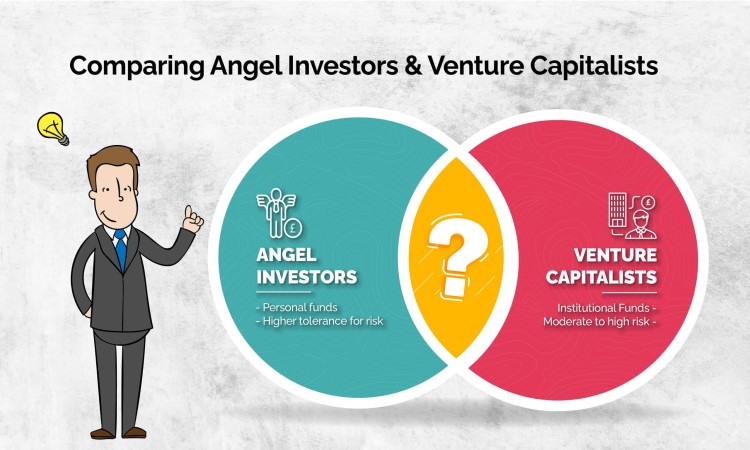
Understanding Angel Investors vs. Venture Capital
Angel investors and venture capital firms both provide funding but differ significantly in approach. Angel investors are typically wealthy individuals who invest their own money in startups during early stages. They tend to offer smaller amounts of capital but may provide more flexibility and personalized mentorship. Their investments are often based on personal belief in the business idea or founder.
In contrast, venture capital firms pool funds from multiple investors and typically invest larger sums in startups with significant growth potential. These firms often come in during later stages of business development and may require a more structured approach. Venture capitalists usually expect rapid scaling and returns, often seeking more equity or control in exchange for their funding.
When deciding between angel investors or venture capital, consider the stage of your business and your funding needs. Angel investors might be ideal for early-stage startups looking for flexible support, while venture capital is better suited for businesses ready to scale aggressively with larger capital investments. Both options offer valuable opportunities, but the right choice depends on your long-term goals.
Funding Stages and Business Growth
The type of investor best suited for your business often depends on its stage of development. Angel investors typically invest in early-stage startups when the business is still refining its product or service. At this point, funding needs are smaller, and angels may offer mentorship and flexibility.
As your business grows and requires more capital to scale, venture capital becomes a more viable option. Venture capitalists invest larger sums during later stages, expecting rapid growth and high returns. When deciding between Angel Investors or Venture Capital, consider the level of growth your business is ready to achieve.
For startups in the initial stages of development, angel investors are usually a better fit. They can help your business gain traction with early funding. However, for businesses entering growth phases or expanding into new markets, venture capital provides the necessary capital for scaling operations and reaching larger goals. Understanding your business growth stage helps you choose the right investment path.
Investment Size and Expectations
When it comes to investment size, angel investors generally provide smaller amounts, typically ranging from $25,000 to $100,000. Their return expectations are often more flexible, focusing on the business’s long-term success. On the other hand, venture capital firms invest larger sums, often in the millions, expecting quicker and higher returns.
Angel Investors or Venture Capital both require equity, but venture capitalists usually demand a larger share of ownership. Their expectations are more aggressive, aiming for rapid growth and high profitability.
The difference in funding amounts and return expectations makes angel investors a better fit for early-stage businesses. Venture capital, however, is ideal for businesses that need significant capital to scale quickly. Understanding these differences helps you make the right decision for your business growth.
Control and Equity Considerations
When considering control and equity, angel investors typically require less ownership than venture capitalists. Angel investors are often more hands-off, allowing you to retain greater control of your company. However, they still expect equity in return for their investment.
On the other hand, venture capital firms usually demand a larger equity stake, which can come with stricter control over decision-making. They may want board seats or influence on key business strategies. When deciding between Angel Investors or Venture Capital, consider how much control you are willing to give up.
If maintaining control is your priority, angel investors may be the better option. Venture capitalists often bring significant funding but may want more involvement in strategic decisions. It’s essential to weigh the trade-off between control and the capital needed for business growth.
Risk Appetite and Industry Focus
Angel investors often have a higher risk appetite compared to venture capitalists. They are more willing to invest in early-stage startups or unproven business models, especially in industries they are passionate about. Venture capital firms, however, tend to focus on industries with high growth potential and proven scalability, like technology and healthcare.
When considering Angel Investors or Venture Capital, it’s important to understand industry preferences. Venture capitalists may prefer established sectors, while angel investors might invest in a wider range of industries.
Angel investors typically accept higher risk for potentially smaller returns. Venture capitalists usually seek more stable ventures, balancing risk with greater reward potential. This difference can influence which investor is the best fit for your business based on your industry and stage of development.
Long-Term Partnership and Value
Both angel investors and venture capitalists can offer more than just financial support. Angel investors often provide mentorship, drawing from their personal business experience to guide you through challenges. They also tend to have strong local or industry-specific networks that can help you grow.
Venture capitalists also offer valuable resources, especially when it comes to scaling. They may provide access to larger networks, including partnerships and talent pools, which are crucial for rapid growth. When deciding between Angel Investors or Venture Capital, consider the long-term support each offers. Both can be key partners beyond just funding, depending on your needs.
Conclusion
When deciding between Angel Investors or Venture Capital, it’s important to evaluate your business needs and long-term goals. Angel investors may be better for early-stage startups that require mentorship and smaller investments. Venture capital firms, however, are ideal for businesses ready to scale rapidly with significant funding. Consider factors like control, equity, and the level of support each can offer. Both investors provide unique advantages, but the best fit depends on where your business stands and the type of partnership you seek for growth.

